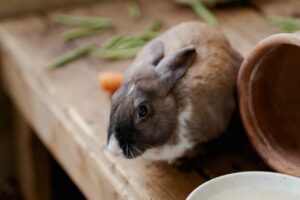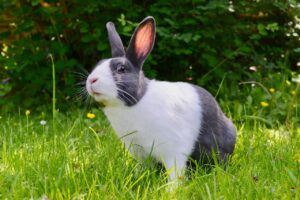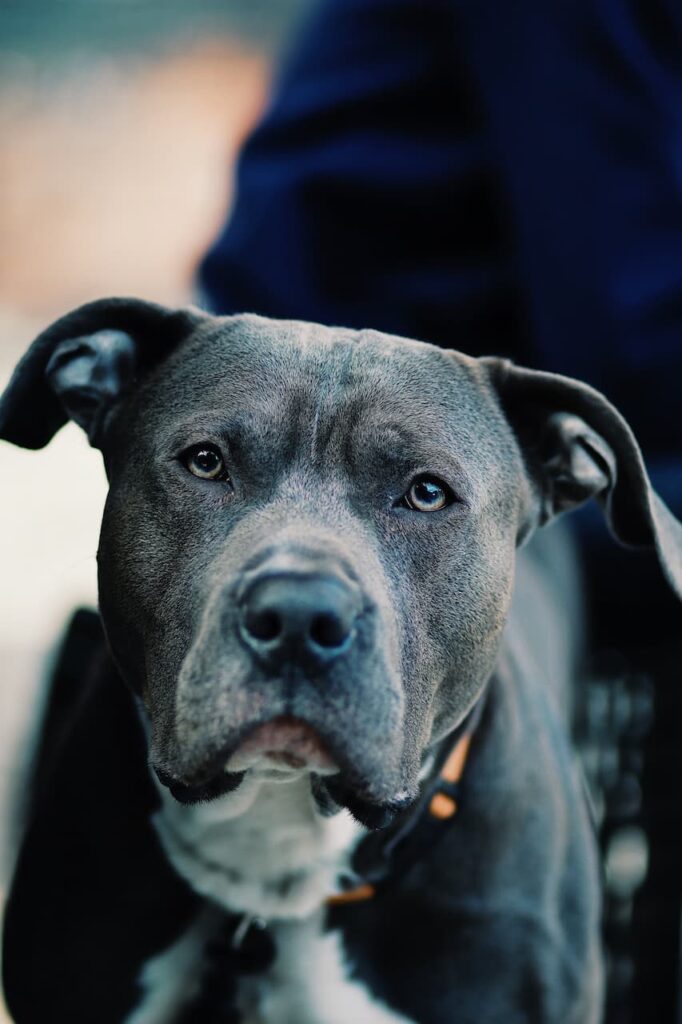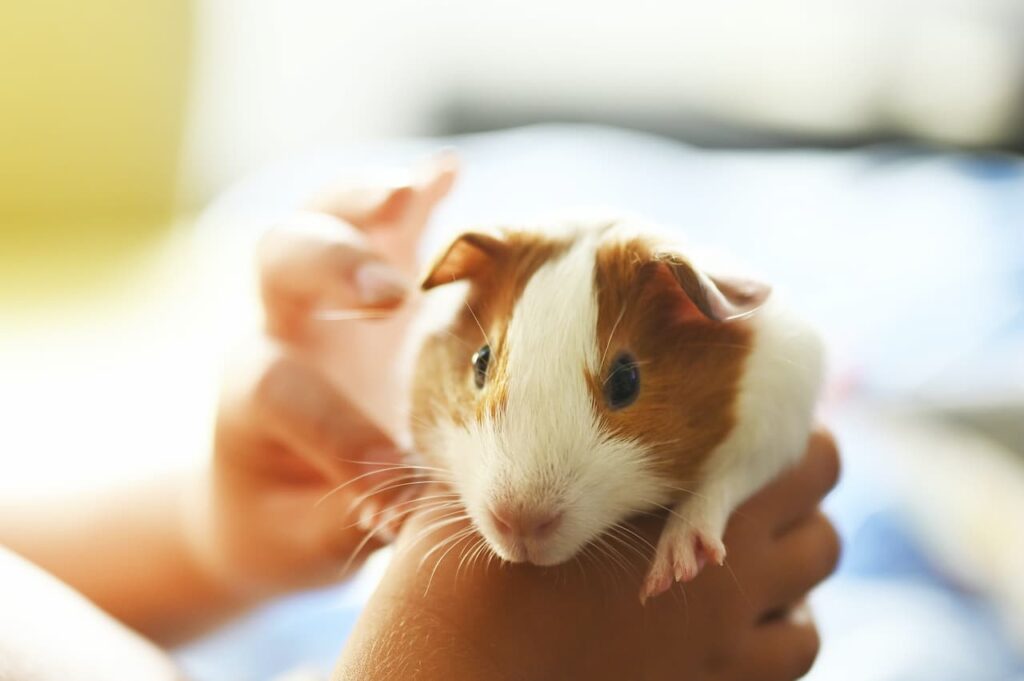What Do Rabbits Eat And What To Feed Them
If you’ve just gotten yourself a new rabbit, then you’re no doubt enjoying time with your new little mate.
Rabbits are incredibly intelligent and social animals, and they can make a great company.
It helps that they’re also extremely cute.
But it’s not all fun and games! As a new rabbit owner, you have a responsibility to this little Lagomorpha (yes, that’s technically the “order” that rabbits are classified as).
Your job is to keep them happy and healthy, and that means you need to feed them.
But what precisely should you be feeding your bunny buddy?
It’s a question that a lot of new rabbit owners find themselves asking, so in this post, we’re going to deep dive into the answer.
Table of Contents
ToggleAn Ideal Bunny Diet
Rabbits love their food, and it’s important to ensure they are not only getting enough to eat, but also the right stuff.
This means they should be eating a natural diet that consists of real vegetables and vegetation. This is what they would be eating in the wild, and therefore it is what they have evolved to thrive best on.
It’s simple really!
When your rabbit eats vegetation that has grown naturally, it will be able to absorb large amounts of vitamins, minerals, and other key nutrients.
These will help to fortify its health in several ways: supporting the immune system, nourishing skin and hair, and more.
This is important not only for a rabbit’s figure, not only for its general health but even for less obvious things like its teeth!
That’s because the fiber in this kind of food can actually act as a kind of toothbrush and dislodge any bits of food or stains that might have been caught on and around its gnashers.
What Can Rabbits Eat?
Vegetables that are safe for rabbits to eat include:
- Asparagus
- Baby sweetcorns
- Beetroot
- Brussel sprouts
- Cabbage
- Carrots
- Cauliflower
- Celeriac
- Cucumber
- Curly Kale
- Fennel
- Peas
- Pumpkin
- Raddish Tops
Weeds and flowers that rabbits can eat include:
- Borage
- Calendula
- Camomile
- Chickweed
- Clover
- Dandelion
- Goosegrass
- Lavender
- Nettle
- Show thistle
Fruits that rabbits can eat:
- Apples (no pips)
- Bananas
- Apricot
- Grapes
- Kiwi fruit
- Mango
- Melon
- Nectarine
- Papaya
- Pears
- Pineapple
- Plums
- Raspberries
Keep in mind that while your rabbit can eat a wide variety of different vegetables and plants, there are some potential issues when they get too much of any of these things.
any of these things.
Many owners will give their rabbits a huge amount of dandelions, for example, seeing as dandelions are easy to come by.
In fact, you can usually grab these from the street outside your home where they often grow by walls!
But while dandelions are good for rabbits in smaller quantities, they do have diuretic properties. This means that a rabbit can have too much of a good thing, and end up with very loose and wet stool.
That’s no fun for anyone, but it’s even worse for rabbits as this can, in turn, end up attracting flies. Those flies can end up laying eggs, which can create serious health problems for the host rabbit.
The moral of the story? Too much of anything is unhealthy. So try to get your rabbit as varied a diet as possible!
Rabbit Staples – An Example Diet
While you want your rabbit to eat as much natural vegetable and vegetation as possible, we do recognize that you probably aren’t going to be able to provide a diet purely based on natural, organic-grown veg.
We don’t expect you to spend half your day in the outback hacking off vines and leaves!
So, for most owners, the majority of the rabbit’s diet is going to consist of hay. You should aim to provide your rabbit with roughly its own body weight in hay.
This should be the good quality stuff, meaning that you want either fresh hay or growing grass – not grass clippings.
“Rabbit Food” – What’s the Deal With the Pellets and Nuggets?
This will then go alongside roughly a tablespoon of rabbit nuggets/rabbit foods.
This is the muesli-type stuff that you find at a lot of pet shops. This is also one of the most common mistakes that new rabbit owners make.
After all, this stuff is labeled as “rabbit food,” so it’s reasonable to think that it would provide everything your rabbit needs on its own. Or at least that it would be a large part of their diet!
In fact, most vets never recommend these muesli products.
That’s because the mixture of seeds and flakes they contain can cause some health issues. In fact, a lot of rabbits will pick out the tasty bits and leave all the good stuff – meaning that they don’t get any good nutrition at all!
You try explaining to your rabbit that it needs to eat its greens!
Not to mention that these foods fail to offer the same natural roughage or balance of nutrients that rabbits get from eating real organic food. This rabbit cereal is the “ready meal” of the rabbit world.
Final Thoughts and Comments
So, keep this to one tablespoon. And then finally, combine this with roughly one adult handful of fresh greens and vegetables that you have sourced. Consider sweeter vegetables and even some fruits as occasional treats.
This is a great way to bond with your pet! Don’t go overboard on the fruit though, as this contains a lot of sugar for a little rabbit.
And absolutely do not give rabbits human treats!
Make sure that you also give them something to wash this all down with.Rabbits need constant access to fresh, clean water. Make sure that you fill it up whenever it runs out, and refresh it every day. Water should be algae free, and you need to take steps to ensure it doesn’t freeze during the winter!
Rabbits need constant access to fresh, clean water. Make sure that you fill it up whenever it runs out, and refresh it every day. Water should be algae free, and you need to take steps to ensure it doesn’t freeze during the winter!
If you follow these simple rules, then your rabbit will be healthy, happy, and full of life and energy.
If only most adult humans would follow the same advice and stick to the healthy, natural, nutritious stuff!
If you loved this article, read our ‘Can Guinea Pigs Eat Corn?’ article.


